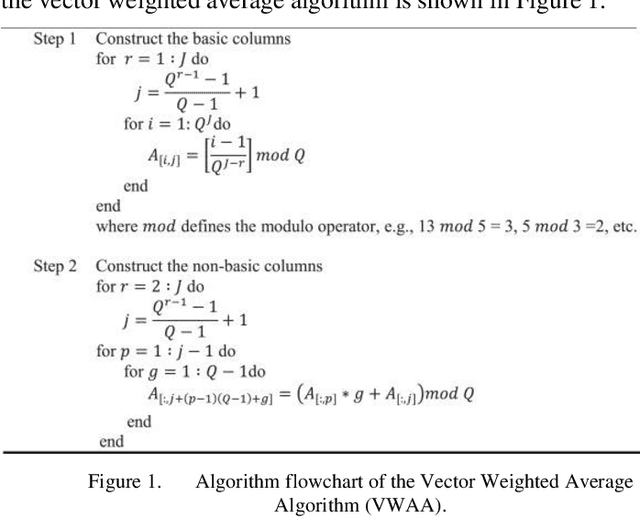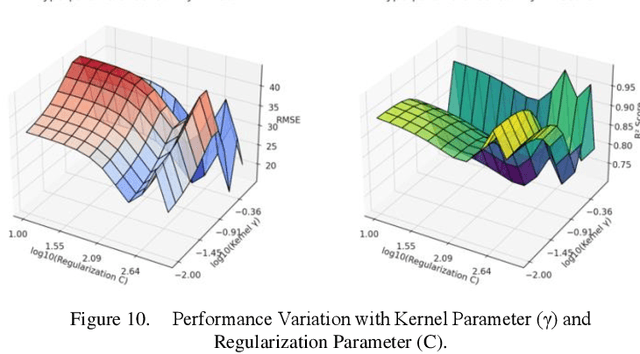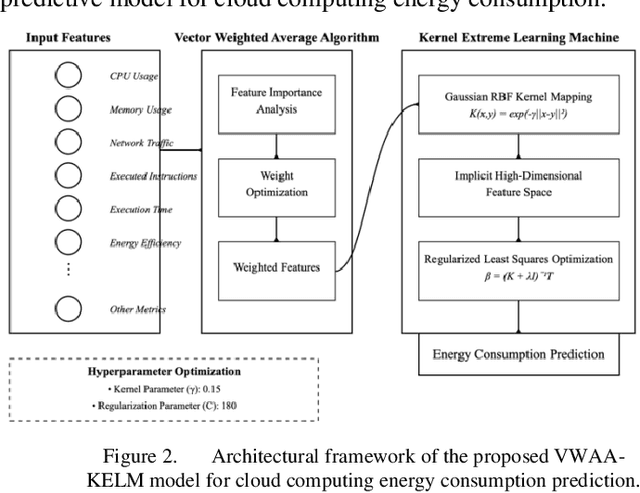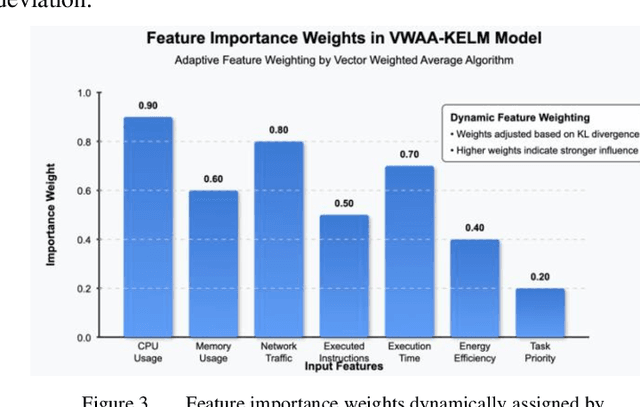Cloud Computing Energy Consumption Prediction Based on Kernel Extreme Learning Machine Algorithm Improved by Vector Weighted Average Algorithm
Paper and Code
Mar 06, 2025



With the rapid expansion of cloud computing infrastructure, energy consumption has become a critical challenge, driving the need for accurate and efficient prediction models. This study proposes a novel Vector Weighted Average Kernel Extreme Learning Machine (VWAA-KELM) model to enhance energy consumption prediction in cloud computing environments. By integrating a vector weighted average algorithm (VWAA) with kernel extreme learning machine (KELM), the proposed model dynamically adjusts feature weights and optimizes kernel functions, significantly improving prediction accuracy and generalization. Experimental results demonstrate the superior performance of VWAA-KELM: 94.7% of test set prediction errors fall within [0, 50] units, with only three cases exceeding 100 units, indicating strong stability. The model achieves a coefficient of determination (R2) of 0.987 in the training set (RMSE = 28.108, RPD = 8.872) and maintains excellent generalization with R2 = 0.973 in the test set (RMSE = 43.227, RPD = 6.202). Visual analysis confirms that predicted values closely align with actual energy consumption trends, avoiding overfitting while capturing nonlinear dependencies. A key innovation of this study is the introduction of adaptive feature weighting, allowing the model to dynamically assign importance to different input parameters, thereby enhancing high-dimensional data processing. This advancement provides a scalable and efficient approach for optimizing cloud data center energy consumption. Beyond cloud computing, the proposed hybrid framework has broader applications in Internet of Things (IoT) and edge computing, supporting real-time energy management and intelligent resource allocation.
 Add to Chrome
Add to Chrome Add to Firefox
Add to Firefox Add to Edge
Add to Edge